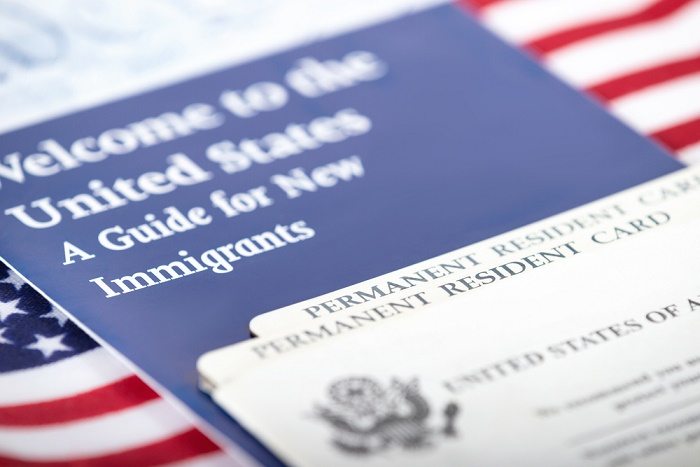Obama Administration to Petition Supreme Court to Review Ruling Against Immigration Reform
The Department of Justice announced Tuesday that it will ask the Supreme Court to review a federal court ruling against President Obama’s executive order on immigration.

The Department of Justice announced Tuesday that it will ask the Supreme Court to review a federal court ruling against President Obama’s executive order on immigration.
The administration’s announcement comes following a decision from the U.S. Court of Appeals for the Fifth Circuit on Monday, in which the appellate court agreed with the February ruling of a lower court Texas judge who issued a “nationwide injunction” stopping Deferred Action for Parents of Americans and Lawful Permanent Residents (DAPA) from being instated. The court ruling means Texas and 25 other states suing the president over DAPA had legal standing to challenge its constitutionality.
On November 20, 2014, Obama announced his three-pronged executive order would provide more resources to the border; make it “easier and faster for high-skilled immigrants, graduates, and entrepreneurs to stay and contribute to our economy”; and “deal responsibly” with the millions of undocumented immigrants already in the United States by removing the upper-level age cap previously in place for Deferred Action for Childhood Arrivals (DACA).
Obama also introduced DAPA, which would apply to an estimated four million people who have been in the country since 2010 and have a child who is a U.S. citizen or permanent resident. DAPA is an extension of DACA; neither are pathways to citizenship, they simply protect undocumented immigrants from deportation and provide work authorization and the ability to obtain a driver’s license. In some cases, they also permit travel abroad.
Monday’s ruling left the administration with two options: appeal to the Supreme Court or go back to the lower court and try the case with the injunction blocking DAPA from being implemented. If the Court sides with the administration, the legal issues blocking Obama’s executive action could be lifted before the end of his time in office.
Texas argued in its case that expanding immigration relief to include a wider class of undocumented immigrants would cause the state to “incur significant costs in issuing driver’s licenses to DAPA beneficiaries.”
A basic “harm” requirement is needed for any litigant looking for grounds to sue. The “harm,” according to the state’s attorneys, is that subsidizing licenses for DAPA beneficiaries would cause the state to lose a minimum of $130.89 on each license issued.
The Fifth Circuit Court rejected the federal government’s argument that extending relief to more undocumented immigrants would offset the injury to the state through increased tax revenue and other benefits. Writing for the 2-1 decision, U.S. Circuit Judge Jerry Smith said that if permitted to go into effect, “DAPA would enable at least 500,000 illegal aliens in Texas to satisfy that requirement with proof of lawful presence or employment authorization … Even a modest estimate would put the loss at several million dollars.”
Smith reasoned that once an injury (in this case, a financial loss to the state) is shown, no attempt is made to ask whether the injury is outweighed by benefits the plaintiff has enjoyed from the relationship with the defendant. “Standing is recognized to complain that some particular aspect of the relationship is unlawful and has caused injury,” Smith wrote.
The State of Texas has a lot to gain financially from implementing Obama’s executive action, according to researchers. A 50-state study, Undocumented Immigrants’ State and Local Tax Contributions, released by the Institute on Taxation and Economic Policy (ITEP) in April, found that undocumented immigrants’ tax contributions would increase significantly were they allowed to work legally under the Obama administration’s executive actions and even more under comprehensive immigration reform.
In 2012, undocumented immigrants paid $11.84 billion in state and local taxes. According to ITEP’s report, the combined nationwide state and local tax contributions would increase to $845 million under full implementation of the administration’s 2012 and 2014 executive actions. In Texas alone, undocumented immigrants paid $1.5 billion in state and local taxes in 2012. ITEP reports that with full implementation of Obama’s executive actions, including DAPA, the State of Texas could see returns of over $57 million.
As the court system continues to litigate DAPA, many immigrant rights organizations are recommending that those who may qualify for DAPA start gathering evidence to prove eligibility because some record requests take several months to be fulfilled. Prerna Lal, an immigration attorney and clinical supervisor at EBCLC, a clinic of Boalt Hall School of Law at UC Berkeley, said that a Supreme Court decision on this will likely not occur until late fall and perhaps not until June 2017, well after the next president has been sworn in. This could spell trouble, as others like Mark Hensch of the Hill have reported, given that GOP presidential candidates like Marco Rubio are vowing to put an end to deferred action.
“While DAPA remains in litigation, deportations will continue unabated and detention policies will continue to be abysmal,” Lal said.
